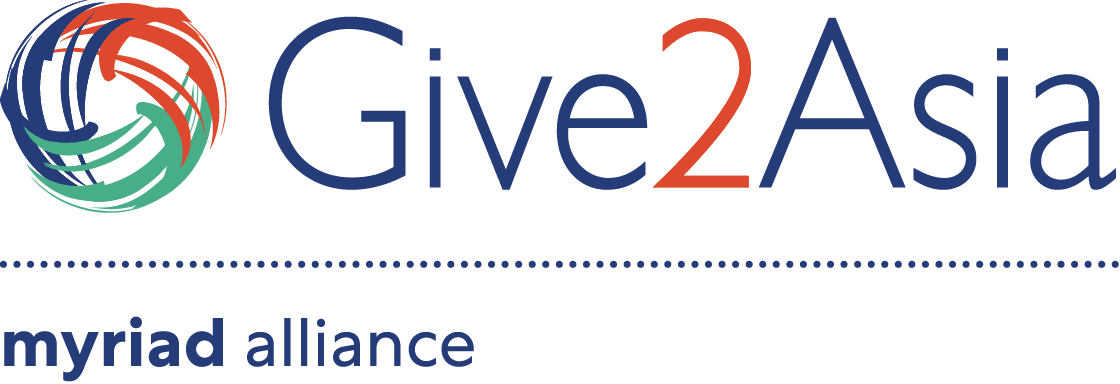Due diligence is an essential part of cross-border philanthropy, but it can pose challenges for donors and charities alike. Understanding the process sets up both parties for a successful relationship.
Updated in October 2021. Original article by Jill Chang and Nicolas Villegas.
What is due diligence for international grants?
For US-based grantmakers, vetting prospective 501(c)3 grantees is a best practice. But for US-based funders that grant abroad, due diligence is an IRS requirement. Grantmakers must use one of the two processes when giving overseas:
- Expenditure Responsibility (ER): This is a process that requires the grantmaker to follow the use of the funds being granted to ensure that the project is charitable. The grantmaker needs to continuously monitor the funds from start to finish.
- Equivalency Determination (ED):This is a legal determination made by an attorney that the grant recipient overseas is the legal equivalent of a U.S.-based charity.
Give2Asia uses the ER for the international grants we steward. This requires us to do a pre-grant inquiry and post grant reporting for every grant released.
Why is due diligence important?
Due diligence mitigates the potential risks of international donor-advised giving. It also increases the likelihood that a philanthropic grant will achieve its objectives as due diligence is designed to make sure the grantee is highly qualified to administer charitable programs, is financially sustainable, and legitimate.
As part of its due diligence process, Give2Asia performs background checks on the organization, board members, and senior staff using both local references and international databases. We do this to ensure that the potential grantee is cleared from illegal and terrorist affiliations, and shed light on negative news or sensitive topics such as political involvement. Findings are clarified with the grantee to provide additional information or clearance on mismatches. Any negative news found is also shared with the donor to address any reputational risks.
Why is due diligence challenging?
Corporations and foundations seeking to support charitable projects overseas may face challenges with the due diligence process:
- Cultural Barriers: Due diligence requires intimate knowledge of local norms and risks. For companies giving in a variety of communities, they must also overcome the language and cultural barriers across their portfolio.
- Local Regulations: To remain in good standing, grantmakers must stay apprised of local regulations. This can prove challenging to do from afar, as the information isn’t always available online and its ever changing.
- Limited Resources: The Corporate Social Responsibility (CSR) function is often run by small teams covering multiple markets. This makes it difficult to dedicate the concentrated effort needed to perform robust due diligence.
Give2Asia performs due diligence for grantmaking on behalf of corporations, foundations, and individual donors. For each grant processed, Give2Asia evaluates the ability of the organization to conduct charitable activities.
Our due diligence begins when a donor selects a grantee and a grant has been confirmed. Our first-level review is performed by advisors in the country or region where a grant is being made.
Give2Asia’s Country Advisors are locally based, bilingual, and with abundant experience in the social sector. The Country Advisors evaluate the application, registration and financial documents and perform a local media and reference check.
Give2Asia’s US team then conducts a second-level review. The team ensures the grantee passes IRS requirements, performs an intensive background check on all board and staff members using a global database of sanctions lists and negative news, and reviews all documentation to mitigate risk.
Give2Asia reviews the validity of the due diligence status each time a grant is issued to the organization.
What information do grantees provide?
Effective due diligence depends on a strong relationship with the potential grantee to collect and evaluate the relevant information. Here is a sample of the grantee-provided documents we evaluate:
Pre-grant:
- Articles of incorporation, by-laws: to see whether they’re registered with local government and follow the most recent regulations.
- List of Board members & key management staff: for example, we could flag the cases in which the Board members are dominated by family members and relatives, or the major donor is sitting on the Board. Cases like these are not unusual in the Asian nonprofit sector.
- Annual reports, financial statements, and income sources: We review reports and plans to verify organization’s track record to conduct charitable activities and their financial health.
- Program proposal & budget evaluation: before giving a grant, we request detailed proposal and budget from the grantee. We seek specific metrics, social impact, and beneficiary information. The proposal and budget templates can be customized according to the request of donors.
Post-grant:
- Monitor and report on grants: We request a report for each financial year of the grant and a final report at the end of the grant period. Our Country Advisors also check in with grantees in the interim to check on the progress of the grants, as needed.
- Customized compliance: The reporting may also be customizable to donor’s requirements, e.g. ensuring the grantee complies with specific donor issued metrics on the reach and success of the grant.
Due diligence is a daunting but invaluable step in identifying the effectiveness of a potential grantee. With over 20 years of international grantmaking, Give2Asia is well-prepared to help funders achieve their overseas philanthropic goals. If you’re interested in learning more about our grantmaking services, you can request a consultation with our team.




